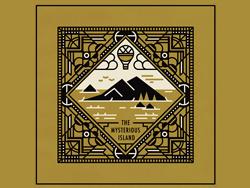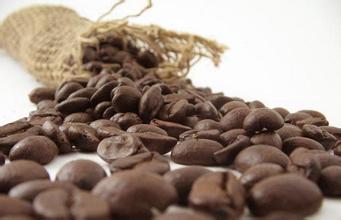Sweet taste Indonesian civet coffee flavor taste manor boutique coffee beans introduction
The cat has a special ability of orientation, which is guided by the incense secreted by the cystic incense glands. When it is active, all the prominent objects along the way, such as tree trunks, stakes and stone edges in its habitat, will often be foamed with the secretions of incense glands, commonly known as "wiping stakes". This kind of scrubbing acts as a marker in the field, but also plays a role of communication with other similar species. When it gets food or encounters an enemy, it can accurately return to the cave as quickly as possible following the route indicated by the mark left behind. The characteristic of this secretion is that the odor is volatile and lasts for a long time, so it is suitable for cats to get information at a certain distance from the cave, or there are plant obstacles in the space, and the information is widely distributed in tropical and subtropical regions in China. [1] including southern Gansu, Sichuan, Shaanxi Qinling, southern Anhui, Zhejiang, Fujian, Jiangxi, Hubei, Hunan, Guangdong, Hainan, Guangxi, Guizhou, Yunnan and low-altitude areas southeast of Xizang (Chayu, Bomi, Motuo, Linzhi, Milin, Cuona, etc.). [5] the resources of China's great cats were estimated to exceed 200000 in the 1950s in Indonesia, Indo-China Peninsula, India (northeast), Bangladesh, Bhutan, Sikkim, Nepal, Kashmir and other regions. After long-term overhunting, the population declined rapidly year by year. By the early 1980s, the natural population of China was less than 20, 000, and by the early 1990s, the natural population was less than 20, 000. Zhejiang, Jiangxi, southern Anhui, Guizhou and other places are very rare, and the population of civet cats is endangered in China.
Kopi Luwak is produced by the feces of Indonesian coconut cats (a kind of civet) as raw materials, so it is called "Kopi Luwak". This kind of animal mainly feeds on coffee beans. After completing fermentation in the coconut cat's stomach, it destroys protein, produces short peptides and more free amino acids, reduces the bitterness of coffee, and then excretes feces as the main raw material. Because coffee beans cannot be digested, they are excreted and Kopi Luwak is made after washing and baking. Coffee critic Chris Rubin said, "the aroma of the wine is so rich and strong, and the coffee is incredibly rich, almost like syrup." Its thickness and chocolate taste, and lingering on the tongue for a long time, the pure aftertaste in the process of digestion, so that the coffee beans have an unparalleled magical change, the flavor tends to be unique, the taste is particularly mellow, rich and round sweet taste is also unmatched by other coffee beans. This is due to the fact that the civets' digestive system destroys the protein in the coffee beans, making the coffee much less bitter and increasing the round taste of the coffee beans.
Because wild civets are obviously better at selecting good coffee fruits, giving this coffee extraordinary characteristics after processing and roasting, Kopi Luwak has become a luxury coffee drink and spread to luxury kingdoms around the world. Local coffee farmers, in pursuit of high profits, bring wild civets home to raise them so that they can produce more Kopi Luwak. However, the Kopi Luwak produced by breeding civets will be much worse in color and taste. Even so, the output of this kind of coffee is still very rare, and it is not affordable for all people who like coffee.

Important Notice :
前街咖啡 FrontStreet Coffee has moved to new addredd:
FrontStreet Coffee Address: 315,Donghua East Road,GuangZhou
Tel:020 38364473
- Prev

Bright citrus acid and round juice taste Panamanian Kasha Coffee flavor, characteristics, taste and taste
Panama is located on the Panamanian isthmus in Central America, bounded by Colombia to the east, the Pacific Ocean to the south, Costa Rica to the west and the Caribbean Sea to the north. The territory is S-shaped to connect North and South America, and the Panama Canal connects the Atlantic and Pacific oceans from north to south. It is known as the bridge of the world. [5] Panama has a land area of 75517 square kilometers, a land length of 772km and a width of 60 to 1.
- Next

Aldumara Coffee Flavor Aldura Coffee
Someone once said: after drinking Mexican coffee, it really has the effect of forgetting worries and getting rid of troubles. Aldura coffee beans are Mexico's top coffee beans, with a strong sweet taste and wine aroma. Because of the coffee produced in Mexico, it is naturally called Mexican coffee. About 5 percent of Mexico's total area is plateaus and mountains, with an annual average temperature of 2527.
Related
- Detailed explanation of Jadeite planting Land in Panamanian Jadeite Manor introduction to the grading system of Jadeite competitive bidding, Red bid, Green bid and Rose Summer
- Story of Coffee planting in Brenka region of Costa Rica Stonehenge Manor anaerobic heavy honey treatment of flavor mouth
- What's on the barrel of Blue Mountain Coffee beans?
- Can American coffee also pull flowers? How to use hot American style to pull out a good-looking pattern?
- Can you make a cold extract with coffee beans? What is the right proportion for cold-extracted coffee formula?
- Indonesian PWN Gold Mandrine Coffee Origin Features Flavor How to Chong? Mandolin coffee is American.
- A brief introduction to the flavor characteristics of Brazilian yellow bourbon coffee beans
- What is the effect of different water quality on the flavor of cold-extracted coffee? What kind of water is best for brewing coffee?
- Why do you think of Rose Summer whenever you mention Panamanian coffee?
- Introduction to the characteristics of authentic blue mountain coffee bean producing areas? What is the CIB Coffee Authority in Jamaica?

